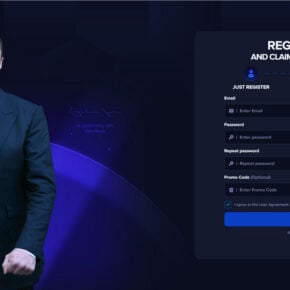Scams have become increasingly prevalent in the digital age, with scammers constantly devising new methods to deceive unsuspecting individuals. One such scam that has gained traction in recent years is the ‘Online Lottery Awareness Program’ advance fee scam email. This article aims to provide a comprehensive overview of this scam, including what it is, how it works, what to do if you have fallen victim, and other relevant information.

What is the ‘Online Lottery Awareness Program’ Advance Fee Scam Email?
The ‘Online Lottery Awareness Program’ advance fee scam email is a fraudulent scheme that targets individuals by claiming they have won a substantial amount of money in an online lottery. The scammers send out mass emails to potential victims, informing them of their supposed winnings and requesting a payment or personal information to facilitate the release of the prize.
How Does the Scam Work?
The scam typically begins with an unsolicited email that appears to be from a legitimate lottery organization. The email congratulates the recipient on winning a significant sum of money and provides details about the prize. To claim the winnings, the victim is instructed to pay an upfront fee or provide personal information, such as bank account details or social security numbers.
The scammers often use various tactics to create a sense of urgency and pressure the victim into taking immediate action. They may claim that the prize will be forfeited if the payment or information is not provided promptly. Additionally, they may use official-looking logos, email signatures, and language to make the email appear authentic.
Once the victim falls for the scam and provides the requested payment or information, the scammers disappear, leaving the victim empty-handed and potentially at risk of identity theft or financial loss.
What to Do If You Have Fallen Victim
Discovering that you have fallen victim to the ‘Online Lottery Awareness Program’ advance fee scam email can be distressing. However, it is crucial to take immediate action to minimize the potential damage.
1. Cease Communication
As soon as you realize that you have been scammed, cease all communication with the fraudsters. Do not respond to any further emails or provide any additional information or payments.
2. Report the Scam
Report the scam to your local law enforcement agency or the appropriate authorities in your country. Provide them with all relevant information, including copies of the scam emails and any other evidence you may have.
3. Protect Your Identity and Finances
Take steps to protect your identity and finances. Change your passwords for all online accounts, monitor your bank and credit card statements for any suspicious activity, and consider placing a fraud alert on your credit report.
4. Educate Yourself and Others
Learn from the experience and educate yourself about common scams and how to identify them. Share your story with others to raise awareness and prevent them from falling victim to similar scams.
Protecting Yourself from Scams
While it is impossible to completely eliminate the risk of falling victim to scams, there are several measures you can take to protect yourself:
- Be skeptical of unsolicited emails or phone calls claiming you have won a lottery or prize.
- Do not provide personal information or payment to unknown individuals or organizations.
- Verify the legitimacy of any lottery or prize by contacting the official organization directly.
- Install reputable antivirus software, such as Malwarebytes Free, and regularly scan your devices for viruses and malware.
- Stay informed about the latest scams and share information with friends and family.
Summary
The ‘Online Lottery Awareness Program’ advance fee scam email is a deceptive scheme that preys on individuals’ desire for financial gain. By understanding how this scam works and taking proactive measures to protect yourself, you can reduce the risk of falling victim to such fraudulent activities. Remember to stay vigilant, report scams, and educate others to create a safer online environment for everyone.



